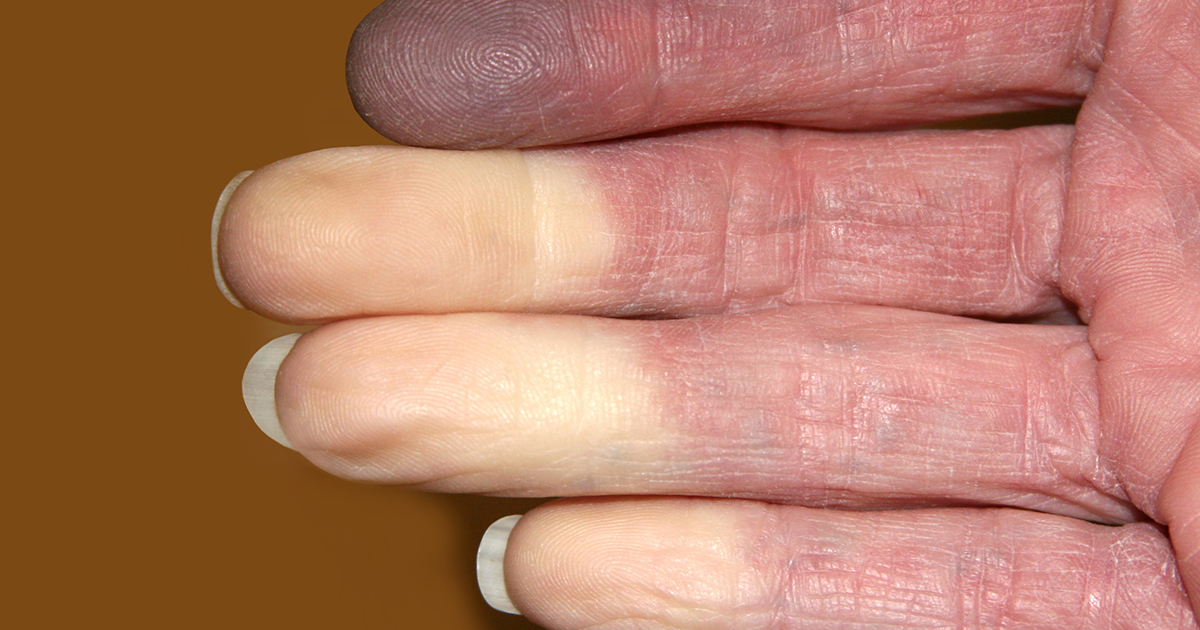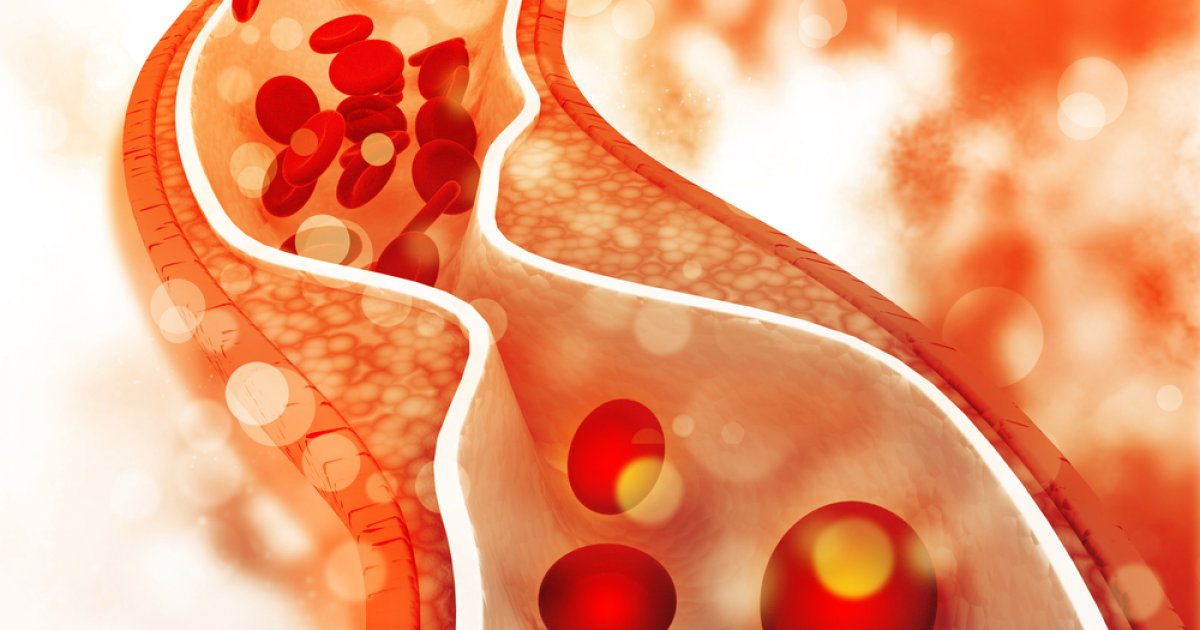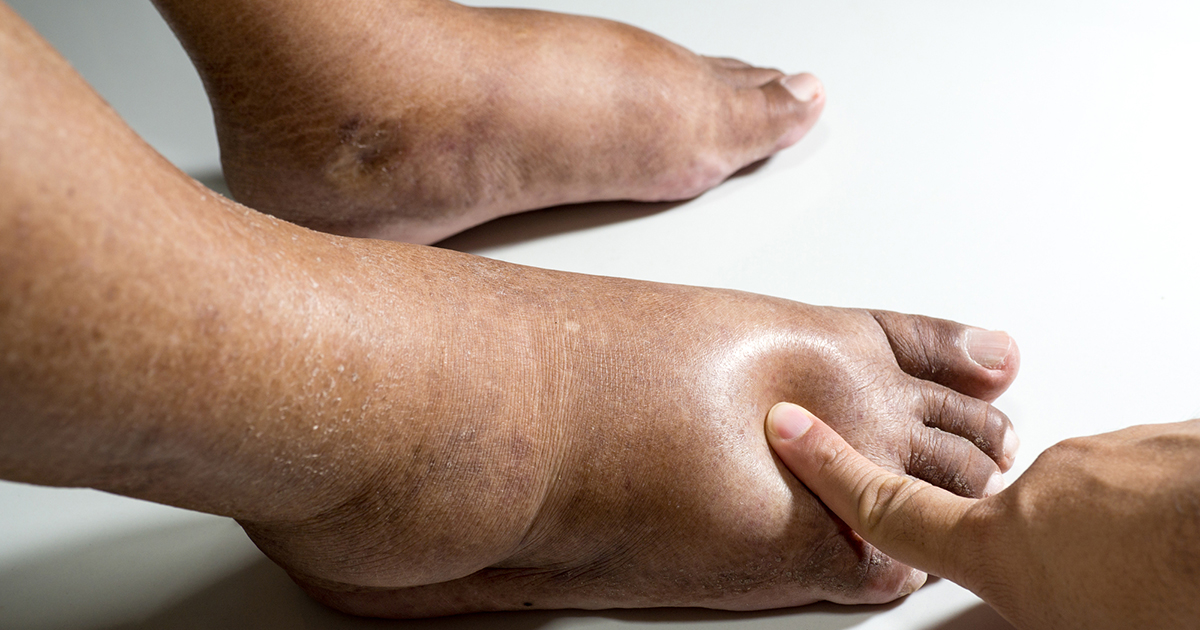Symptoms And Complications Of Pickwickian Syndrome
Pickwickian syndrome, also known as obesity hypoventilation syndrome, is a health condition that affects breathing and the blood. Obesity can restrict the ability of the lungs to move oxygen into the blood and carbon dioxide out of the blood. When gases are not exchanged properly, it leads to an increase in carbon dioxide and a decrease in oxygen within the blood. Improper levels of gases in the bloodstream can lead to symptoms and complications that can dramatically impact the health of someone with Pickwickian syndrome. While there is no common cause of this condition, losing weight can improve symptoms and reduce the risk of complications.
Cyanosis

Blood cells full of oxygen are a bright red, and this is what causes the pinkish coloring in the skin. However, when blood cells do not contain enough oxygen, they are darker and more purple. When blood oxygen levels are low, it can lead to a bluish tint in the extremities, such as the tips of the fingers and toes, beneath the nails, and of the lips. Severe cases can cause a bluish tint all over the skin, which is something called cyanosis. A bluish discoloration of the skin can be a symptom of many conditions, though it is important to note it is often seen in individuals with Pickwickian syndrome.
Feeling Out Of Breath

Individuals who are overweight may regularly feel like they are out of breath during even light activity. However, Pickwickian syndrome patients may experience difficulty breathing due to improper brain response to breathing. Feeling out of breath can also be a result of the lungs trying to work harder to increase the oxygen in the blood while decreasing the levels of carbon dioxide that can build up due to improper gas exchange that can take place with more effective respiratory action. While losing weight can take some pressure off of the lungs, it is important to make sure there are no other problems causing these feelings of being out of breath.
Obstructive Sleep Apnea

Difficulty breathing or periods of lapsed breathing during sleep is a common sign of obstructive sleep apnea, a symptom frequently associated with Pickwickian syndrome. Lapses in breathing can be caused when the throat becomes blocked during sleep, such as from excessive fat tissue or the tongue relaxing back into the throat. Some cases of apnea are caused by a lack of brain signals to the breathing muscles during sleep. Signs of sleep apnea include choking or coughing during sleep, snoring, lapses in breathing, and waking up tired or with a headache.
Pulmonary Hypertension

Pulmonary hypertension occurs in the blood vessels in the lungs and heart when the blood vessels are blocked or damaged. Excessive fat tissue can place too much pressure on the organs, often leading to blood vessel damage or narrowing. The hardening of these blood vessels can cause the heart or lungs to work harder, leading to the development of diseases, including pulmonary hypertension. There is no treatment for pulmonary hypertension, so it is important to do whatever is possible to prevent its development. Pulmonary hypertension is also notable as it is a common complication of Pickwickian syndrome when appropriate treatment is not undertaken or when the condition is particularly severe.
Edema In The Legs

Edema, a medical term used to refer to swelling, in the legs is often a complication of Pickwickian syndrome, alongside individuals who are overweight or who are dealing with heart or lung issues. When there is not enough circulation in the legs, fluids can collect, especially in the lower legs and feet. It is important to note edema in the legs can occur in many conditions, so finding the exact cause is imperative for a proper diagnosis and effective treatment options. If patients notice swelling in their legs that does not occur from long periods of sitting or standing, they may want to be checked for Pickwickian syndrome as soon as possible.
